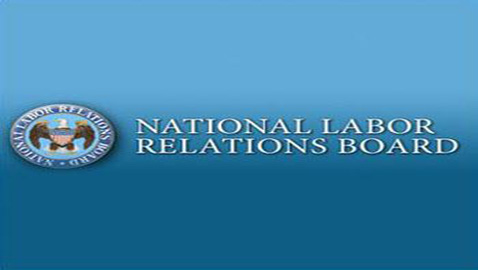NLRB Investigates At-Will Employment Prods Employers To Modify Provision
Post Views 1
However, recently in in American Red Cross Arizona and Lois Hampton and Hyatt Hotels Corporation and United Here International Union, Region 28 of the National Labor Relations Board (NRLB), situated in Arizona, has endeavoured to ban this common practice by finding such at-will provisions unlawful under the National Labor Relations Act (NLRA).
In the unjust termination case brought Lois Hampton and the National Labor Relations Board Administrative Law Judge Gregory Z. Meyerson said that the statement in the at-will section of the employee handbook of the American Red Cross Arizona Blood Services Region was unreasonably “overly-broad and discriminatory.”
Moreover, said judge Meyerson that the provision in the employee handbook that the at-will agreement between the employee and employer could not be changed without the employee granting assent and the executive VP/president or chief operating officer of the Red Cross also agreeing to him was in violation of the NLRA and amounted to employee foregoing their right to engage in concentrated activities to change their at-will employment status and could be interpreted as the employees being banned from using unionized activities to get their voice across.
Not only did the judge order that Hampton be taken back on her job he also said that her record be obliterated. The judge also ordered the Red Cross to post precise and clear language reinforcing employees’ rights to engage in combined activities.
In yet another unfair labor practice case, the United Here International Union and the NLRB filed similar allegations on the Hyatt Hotels Corp. accusing them of having an “overly-broad and discriminatory,” at-will provision in the employee handbook.
In the statement they wrote, “I acknowledge that no oral or written statements or representations regarding my employment can alter my at-will employment status, except for a written statement signed by me and either Hyatt’s Executive VP/Chief Operation Officer or Hyatt’s President.”
Instead of challenging it in court Hyatt preferred to settle out of court and agreed to withdraw and amend the sections of its employment agreement that supposedly embodied unfair labor practices, including the at-will provision. Hyatt also agreed to post notices informing other employees of the changes and also to change accordingly, existing employee acknowledgement forms.
Although these contentious cases have occurred in Region 28, they have far reaching consequences and a lesson can be learned by all, especially by employers, from them. They reflect the NLRB new approach and position to the at-will provisions.
Lafe Solomon, acting NLRB general counsel, has made it clear that at-will employment provisions that restrict amendment of the at-will employment relationship wholly to a writing approved by a senior company official, is in infringement of NLRA rules.
Solomon says that he believes that such provisions are not lawful because they may convince employees into believing that their at-will agreement will remain the same and that it cannot be altered or changed even through ‘union representation and collective bargaining.’ This belief, says Solomon, will discourage the employee from concerted activities.
It is recommended that employers should re-examine the at-will provisions in their employee handbooks and employee contracts and see if they tally and comply with the NLRA rules.
However, since their still exists, considerable ambiguity as to what an at-will provision should contain that respects the rights of both the employer and the employee and also fulfils NLRA requirements; employers should make workplace-specific determinations and decide if their employment documents need to be modified.
One safety precaution is not to modify anything but add in your at-will provision section in the handbook, that it will not impact the employees’ right to negotiate singly or in a group and participate in concerted activities regarding the terms and conditions of their employment under the NLRA.
If nothing else, the very little that employers should do, given the potential and high-possibility of NLRB litigation in the provision, is to stay informed of the developments in this area.
NLRB Investigates At-Will Employment Prods Employers To Modify Provision by Harrison Barnes


 How the HR Department Changed in the Last Ten Years
How the HR Department Changed in the Last Ten Years  6 Ways to Make Your Employees Happier
6 Ways to Make Your Employees Happier  Is Music in the Office Appropriate?
Is Music in the Office Appropriate?  Fake FMLA Requests Can Be Overcome
Fake FMLA Requests Can Be Overcome  Cutting Full-Time Employee Hours Can Get You Sued
Cutting Full-Time Employee Hours Can Get You Sued  What’s Lacking in the Work Place
What’s Lacking in the Work Place  Top 5 Areas You Should Cut Costs in Your Business in 2016
Top 5 Areas You Should Cut Costs in Your Business in 2016